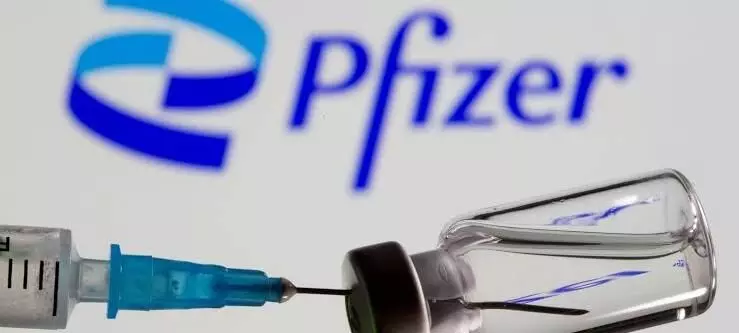
Pfizer's new study finds its vaccine efficacy 'declining' with time
text_fieldsIn a study conducted by Pfizer and BioNTech, it was reported that the Pfizer/BioNTech Covid-19 vaccine's efficacy rate declined by about 6% every month following the initial two months after receiving the shot. Data suggested that the efficacy rate fell from 96% to 83.7% after four to six months, which might pave the way for booster shots, reported The New York Times.
The American multinational pharmaceutical company reported on July 28 that a third shot of the vaccine, a 'booster shot', would further improve immunity among the vaccinated populace. Pfizer also noted that while the efficacy reduces with time, the vaccine still offers lasting protection against severe Covid-19 infection.
However, the need for booster shots at this time is widely debated. Federal health officials have deemed booster shots to be unnecessary. The need to administer additional shots for already vaccinated people while a large per cent of the population remains unvaccinated has also been questioned by experts, with some stating that it is not the best use of resources.
With the Delta variant causing a surge in cases in the United States once more, whether the vaccine's efficacy is time withstanding is yet to be seen. The data may influence the Biden administration's decision to administer booster shots for older people more susceptible to severe infections, which would mean more business for Pfizer.
42,000 people from six countries volunteered to be a part of Pfizer's clinical trial in July last year. One-half of the volunteers received vaccinations, while the other received placebo. The results showed that the vaccinated participants' chance of getting sick was reduced by 95%, as compared to the group that received a placebo.
The recent study is a follow up of the same clinical trial, wherein the researchers studied the efficacy rates for up to six months after the second dose was administered against symptomatic Covid-19 patients. The study, which was posted online, is yet to be peer-reviewed or published.
The results showed that efficacy dropped to 90.1% two to four months after the vaccination, and the number further dropped to 83.7% after around six months of being vaccinated.
It did note that the vaccine's efficacy against severe disease stayed at a steady high of 97%. Akiko Iwasaki, an immunologist at Yale University after inspecting the study, told The New York Times that: "This drop is very slight — I wouldn't say it's waning." Referring to the need of introducing booster shots for the general population, she added that: "These data don't support a need for that right now. Everything that's engaged by the vaccine can fight off that spread that ultimately leads to severe disease."
The study was conducted before the rise in Delta variant cases, which is speculated to be more aggressive. However, the need for booster shots is still uncertain.






















